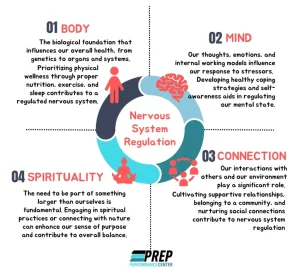
Researchers have discovered that social media use has been linked to numerous adverse mental health outcomes, including lower self-esteem, depression and anxiety.
Cyberbullying can have serious repercussions for individuals’ mental health. There are ways social media can lessen its effect by setting limits, substituting with alternative activities and remaining aware of triggers.
1. Take a Break
In 2017, psychologist Jean Twenge warned that social media was contributing to depression, loneliness, and other forms of mental illness among young people. She blamed smartphones running social media apps as the cause. Her theory received wide-spread attention and was supported by data.
However, this type of research can have its limitations. Often relying on cross-sectional studies and correlation analysis – not knowing which variable led directly to which outcome makes it impossible to draw any definitive conclusions about cause and effect relationships.
Researchers exploring this area are further challenged by the fact that various social media features can have detrimental effects on an individual’s mental health, including private chats, group chats, browsing posts, adverts, media sharing calls likes and comments and pages. Researchers used Analytical Hierarchical Process (AHP) to identify and rank these factors that had the highest potential to deteriorate someone’s psychological state – results indicate some features are more likely than others to cause psychological deterioration.
2. Replace Social Media with Other Activities
Replace social media use with activities that will have a positive effect on your mental health, such as exercise or spending time outdoors. Many have reported feeling more relaxed and calm after cutting back on social media use.
Studies have demonstrated the devastating effects that social media use can have on a person’s emotional well-being, leading to feelings of depression and anxiety, eating disorders, lack of sleep and even physical symptoms such as eye strain or headaches. Furthermore, the COVID-19 pandemic has brought renewed attention to mental health issues; one issue being how social media influences young people; rates of depression anxiety and suicidal ideation have skyrocketed among adolescents over recent years due to social media influence.
3. Be Mindful of Triggers
One way social media can have an adverse effect on mental health is if we become mindful about triggers. Triggers are situations or objects which cause an extreme reaction based on our past experiences, beliefs and sensitivities.
FOMO (Fear Of Missing Out), is a common social media-induced anxiety. Comparing your life to others’ highlights or dwelling on “what ifs” may cause stress and depression while hindering living fully in the present moment. This may even increase anxiety levels over time.
Twenge points out that FOMO’s rise has paralleled with smartphone proliferation, leading to almost nonstop social media engagement. She believes this technology may be contributing to rising rates of depression and loneliness; however, psychologists can sometimes blame new technologies without strong data to support it; therefore it’s crucial to recognize both major triggers as well as subtler ones which might trip you up.
4. Stay Connected in Other Ways
Many individuals utilize social media to spread awareness of mental health conditions and offer resources for those suffering. Furthermore, they share personal stories that offer encouragement to individuals struggling with their condition – something which may give hope and boost motivation to overcome challenges head on.
Note, however, that much of the research conducted on social media and mental health is correlational; that is to say, researchers have observed an association between time spent on social media and depression symptoms and time spent online, but cannot definitively attribute causality.
Due to multiple contributing factors – family background and environmental conditions, as well as symptoms caused by other health conditions – depression is often an indicator of something else brewing within us, making us susceptible to its devastating effects. Therefore, it is crucial that we take time and care in prioritizing our mental wellbeing by setting limits for social media use, replacing it with activities, being aware of triggers, and staying connected in other ways.







